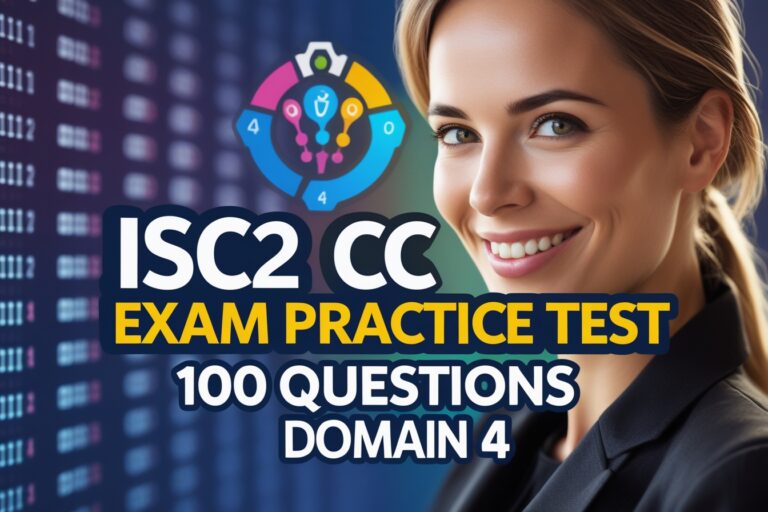Read Also: 20 MCQ Questions on Knowledge Representation in AI
1. State whether the following statements about the reasoning in AI are True or False.
i) It is the act of deriving a conclusion from certain properties using the given methodology.
ii) It must figure out what it needs to know from what it already knows.
A. i-True, ii-True
B. i-True, ii-False
C. i-False, ii-True
D. i-False, ii-False
2. … is a set of mathematical principles for knowledge representation based on the degree of membership.
A. Formal logic
B. Informal logic
C. Fuzzy logic
D. Monotonic logic
3. The propositional logic and predicate logic are examples of …
A. Formal logic
B. Informal logic
C. Fuzzy logic
D. Monotonic logic
4. State whether the following statements about the monotonic reasoning are True.
i) It is the process that moves in one direction only.
ii) Here is the number of facts in the knowledge base is always increasing.
iii) It allows a statement to be retracted.
A. i and ii only
B. ii and iii only
C. i and iii only
D. All i, ii and iii
5. State whether the following statements about the non-monotonic reasoning are True or False.
i) Non-monotonic logic is used to formalize believable reasoning.
ii) The conclusions derived are valid deductions and they remain so.
iii) Human reasoning is non-monotonic in nature.
A. i-True, ii-True, iii-True
B. i-True, ii-False, iii-True
C. i-False, ii-True, iii-False
D. i-False, ii-False, iii-True
6. A … reasoning system tracks a set of tentative beliefs and revises those beliefs when knowledge is observed or derived.
A. Statistical
B. Non-monotonic
C. Fuzzy logic
D. Monotonic logic
7. Which of the following is/are the uncertainties of reasoning.
i) Incompleteness of knowledge
ii) Inconsistencies of knowledge
iii) Changing knowledge
A. i and ii only
B. ii and iii only
C. i and iii only
D. All i, ii and iii
8. Which of the following is/are the methods of logical reasoning.
i) Deduction
ii) Induction
iii) Abduction
A. i and ii only
B. ii and iii only
C. i and iii only
D. All i, ii and iii
9. … is using rules and preconditioned to make a conclusion.
A. Deduction
B. Induction
C. Abduction
D. Confirmation
10. Inference engines, theorem proves and planning are the uses of …
A. Deduction
B. Induction
C. Abduction
D. Confirmation
11. Neural nets, Bayesian nets, and pattern recognition are the uses of …
A. Deduction
B. Induction
C. Abduction
D. Confirmation
12. … is using the conclusion and the rule to support that precondition could explain the conclusion.
A. Deduction
B. Induction
C. Abduction
D. Confirmation
13. Knowledge discovery, statistical methods, and data mining are the uses of …
A. Deduction
B. Induction
C. Abduction
D. Confirmation
14. State whether the following statements about logical reasoning are True or False.
i) Logical reasoning is the process of drawing conclusions from premises using rules of inference.
ii) The study of logic is divided into formal and informal logic.
iii) The formal system has axioms.
A. i-True, ii-True, iii-True
B. i-True, ii-False, iii-True
C. i-False, ii-True, iii-False
D. i-False, ii-False, iii-True
15. A monotonic logic cannot handle …
i) Reasoning by default
ii) Abductive reasoning
iii) Belief revision
A. i and ii only
B. ii and iii only
C. i and iii only
D. All i, ii and iii
16. A … cannot handle abductive reasoning because consequences are only deduced as most likely explanations.
A. default logic
B. monotonic logic
C. non-monotonic logic
D. fuzzy logic
17. … is a form of many-valued logic in which the truth values of variables may be any real number between 0 and 1.
A. default logic
B. monotonic logic
C. non-monotonic logic
D. fuzzy logic
18. … cannot represent vague concepts and therefore fails to give the answers on the inconsistencies.
A. default logic
B. monotonic logic
C. non-monotonic logic
D. fuzzy logic
19. A … cannot handle reasoning by default because consequences may be derived only because of lack of evidence of the contrary.
A. default logic
B. monotonic logic
C. non-monotonic logic
D. fuzzy logic
20. State whether the following statements about the fuzzy logic are True or False.
i) The concept of fuzzy logic is extensively applied in business, finance, defense, etc.
ii) Unlike two-valued Boolean logic, fuzzy logic is multi-valued.
A. i-True, ii-True
B. i-True, ii-False
C. i-False, ii-True
D. i-False, ii-False
Answers:
- A. i-True, ii-True
- C. Fuzzy logic
- A. Formal logic
- A. i and ii only
- B. i-True, ii-False, iii-True
- B. Non-monotonic
- D. All i, ii and iii
- D. All i, ii and iii
- A. Deduction
- A. Deduction
- B. Induction
- C. Abduction
- C. Abduction
- A. i-True, ii-True, iii-True
- D. All i, ii and iii
- B. monotonic logic
- D. fuzzy logic
- D. fuzzy logic
- B. monotonic logic
- A. i-True, ii-True









